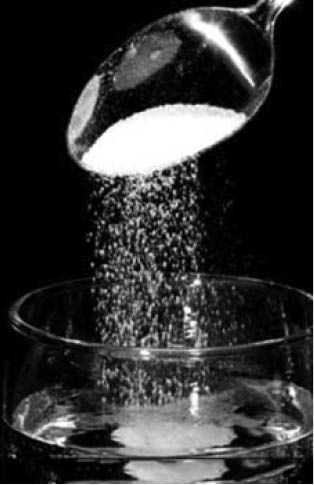Nigerians cautioned against excessive salt intake
The Special Adviser to the President on Health, Dr Salma Anas-Ibrahim, has enjoined Nigerians to avoid excessive consumption of salt. She gave the advice yesterday in Abuja during her investiture as the policy champion for salt target regulations in Nigeria organised by the Network for Health Equity and Development (NHED). She said excessive salt consumption […]

The Special Adviser to the President on Health, Dr Salma Anas-Ibrahim, has enjoined Nigerians to avoid excessive consumption of salt.
She gave the advice yesterday in Abuja during her investiture as the policy champion for salt target regulations in Nigeria organised by the Network for Health Equity and Development (NHED).
She said excessive salt consumption poses a serious threat to public health, contributing significantly to the prevalence of both communicable and non-communicable diseases such as hypertension (HBP) and cardiovascular (heart) diseases.
“The World Health Organisation (WHO) recommends a sodium consumption of less than two grams per day, which is equivalent to five grams of salt (less than one teaspoon full of salt). Let’s reflect; is this a reality in Nigeria? The Nigerian government estimated that the mean salt intake in 2018 was 10 grams per day, while a national population survey conducted in 2020 suggests a daily sodium intake of 143.5 mmol, equivalent to 3.3 grams of sodium.
- Experts call for implementation of disaster risk reduction plan to prevent further disasters
- N-HYPADDEC urges Tinubu to declare state of emergency on flooding
“Both values significantly exceed the WHO’s recommended daily limit. This excessive consumption of salt has been estimated to account for 10% of cardiovascular disease-related deaths in Nigeria,” she said.
She said as the policy champion for salt target regulations in Nigeria, she would use her platforms to raise awareness about the health risks associated with high salt intake and the benefits of reducing it, especially for women and children, including adolescent and young people in order to catch them young.
She said she would also engage with key stakeholders, policymakers, health professionals, and the public to emphasise the importance of implementing mandatory salt target regulations.
“We need to make a strong, evidence-based case for these regulations to ensure they are adopted and enforced as part of the PBAT Youth Champions for Health Campaign.
“In partnership with NHED, I will lead the charge in engaging with government bodies and agencies to ensure that effective salt-targeted regulations are put in place. This is not something that can be done in isolation, we need to come out of our comfort zones as health professionals and partner with relevant stakeholders. It requires collaboration and concerted effort.
“My role will also involve mobilising support from other sectors of government outside of the health sector, including the private sector, manufacturers, and civil society, ” she added.
Olushina Michael Ajidahun, popularly known as The-Bearded-Dr-Shina, who was appointed, as a social media influencer for salt target regulations in Nigeria, committed to using his platform to raise awareness about the dangers of excessive salt consumption and to inspire others to take action to improve their health.
“I believe that by leveraging the power of social media, we can reach a wider audience and create a more impactful movement for salt intake reduction,” he said.
Dr Jerome Mafeni, Project Lead and technical advisor of the Network for Health Equity and Development (NHED), said policy interventions play a crucial role in creating a healthier environment for consumers, adding that by implementing mandatory salt targets on processed foods, we can significantly reduce the overall sodium intake of the population.
He said social media advocacy also plays a vital role in raising awareness, mobilising public support and holding industry accountable.
